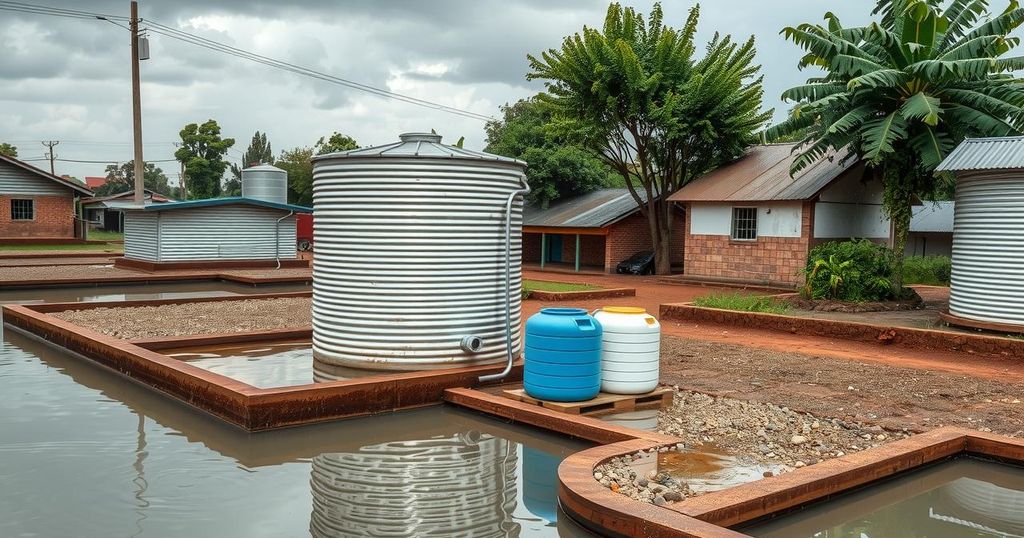Carbondale’s Mark Weinhold and his team launched the Terra Firma Rainwater Collective in 2018 to combat urban flooding and erosion in the Congo. Supported by USAID and World Bank, the nonprofit promotes rooftop rainwater collection and vegetation restoration, directly benefitting local residents who struggle with water access. The initiative addresses both immediate water needs and ecological challenges, showcasing practical solutions rooted in community engagement.
Mark Weinhold, a Carbondale resident and U.S. Forest Service employee, recounted a moment from October 2018 while assessing flood damages along the Congo River in Brazzaville, Republic of Congo. His evaluation revealed the severity of urban flooding and erosion affecting local homes. Alongside a team of hydrologists and engineers, he initiated a project aimed at curbing these issues, ultimately leading to the establishment of the Terra Firma Rainwater Collective. This nonprofit organization, supported by USAID and the World Bank, collaborates with local entities to implement rooftop rainwater collection systems and promote vegetation efforts to mitigate flooding. With substantial rainfall in the region, Weinhold emphasized the necessity of localized solutions to manage water rather than relying on extensive infrastructure typically seen in larger cities.
Terra Firma addresses the practical challenges faced by residents, particularly women and children who often trek significant distances to fetch potable water. Lise-Olga Makonga, local project coordinator for Eco Ecole and CEEDD, echoes the innovative solution proposed by Terra Firma. The initiative not only aids families in collecting and utilizing rainwater for daily activities but also fosters a degree of economic self-sufficiency. By employing thermoplastic clips that attach gutters to common roof types, Terra Firma enhances rainwater collection capabilities, contributing to the growing popularity of this practice in Kinshasa.
Furthermore, CEEDD emphasizes the importance of local ecology by encouraging reforestation and stabilization of eroded soil, while also fostering a deeper understanding among residents about the significance of maintaining their natural environment. There is a collaborative effort to expand these practices to Brazzaville, where different political landscapes pose unique challenges. With strategic planning and focused investments, the Terra Firma initiative illustrates how grassroots efforts can bring about significant change in managing flooding and enhancing water accessibility in a vulnerable region.
The ongoing challenges of flooding and erosion in the Congo region have raised alarms among local communities, necessitating innovative approaches to water management. The impacts of climate change are exacerbating these issues, especially during monsoon seasons where intense rainfall leads to severe urban flooding. As a response to these environmental struggles, the Terra Firma Rainwater Collective was formed to offer practical, on-site solutions for water collection and management. The organization focuses its efforts on educating residents and establishing systems that can alleviate the burden of water scarcity and flooding in urban areas vulnerable to climate extremes.
The Terra Firma Rainwater Collective highlights the potential for effective localized solutions to combat urban flooding and enhance water accessibility in the Congo region. By implementing rainwater collection systems and promoting environmental sustainability, the organization plays a crucial role in empowering communities to manage their water resources more effectively. As the need for innovative environmental solutions grows amid changing climatic conditions, the initiative serves as a model for similar challenges worldwide, emphasizing accessibility, education, and community engagement.
Original Source: soprissun.com






